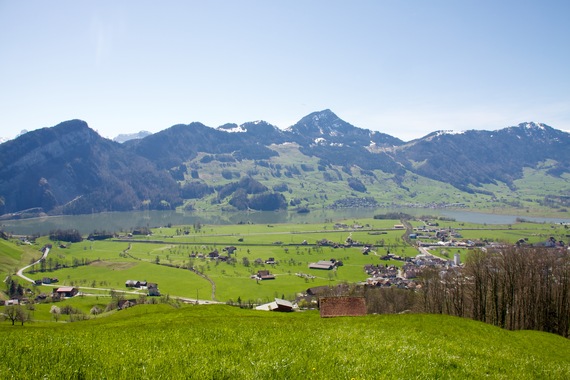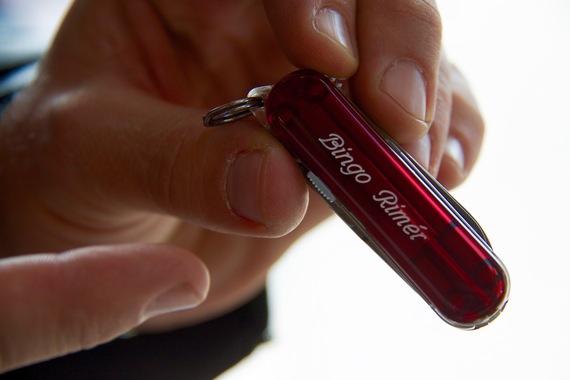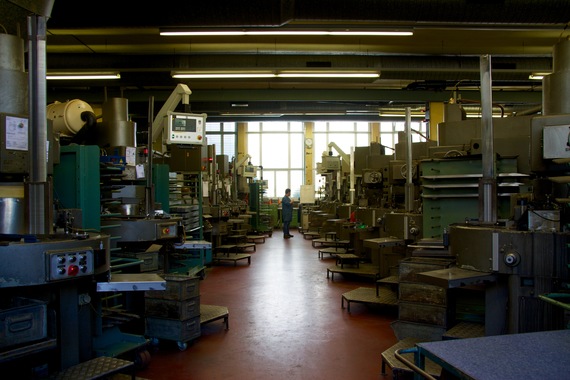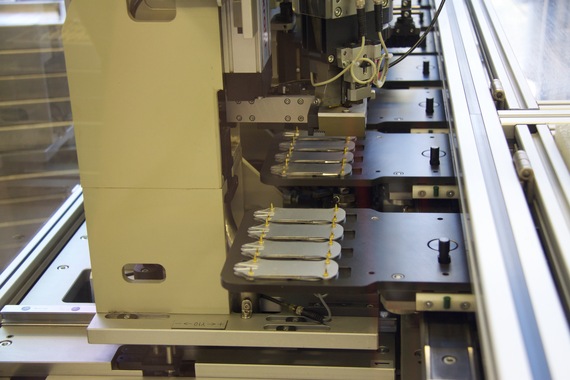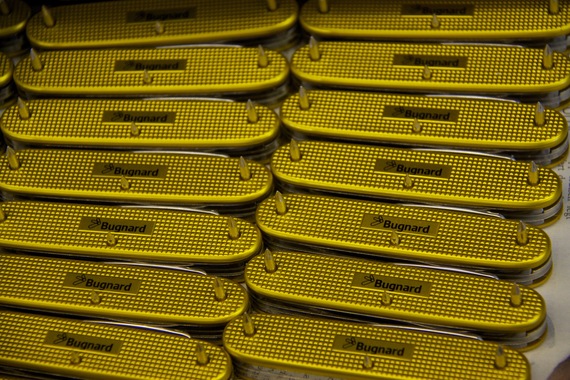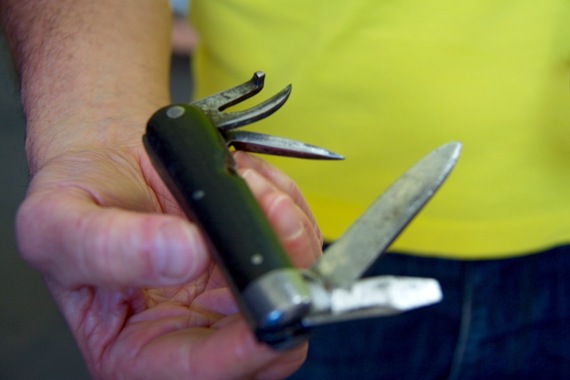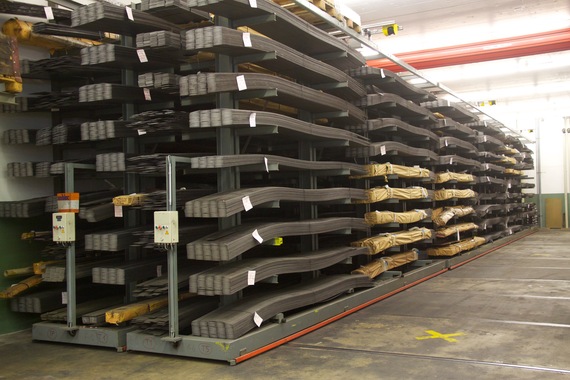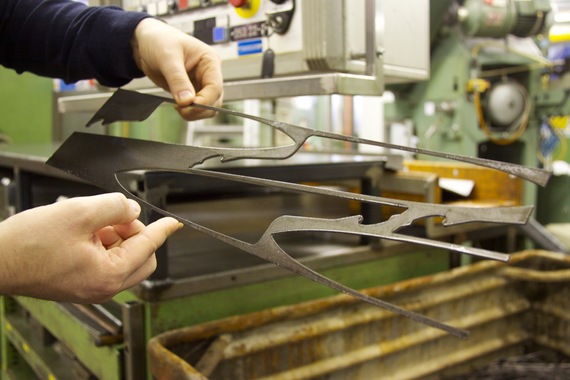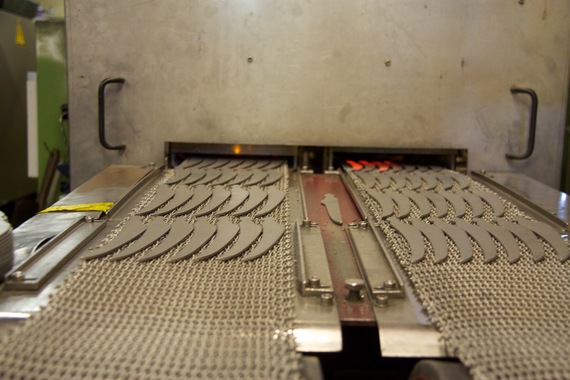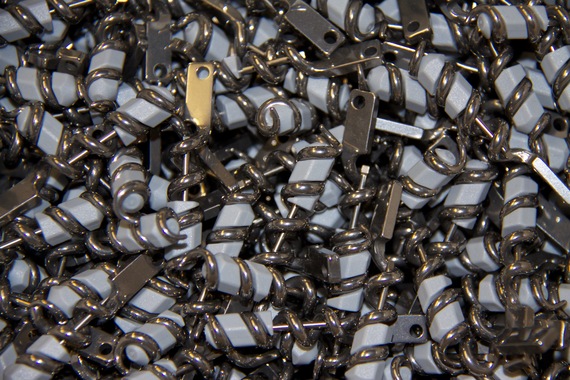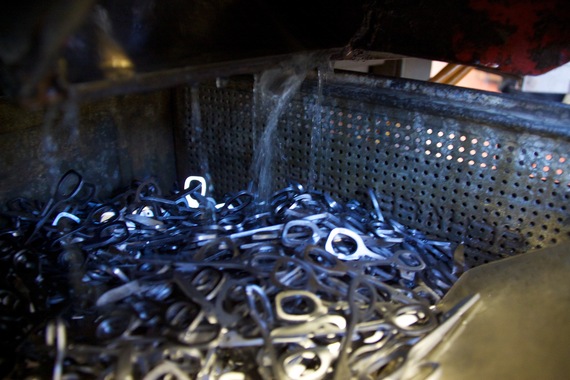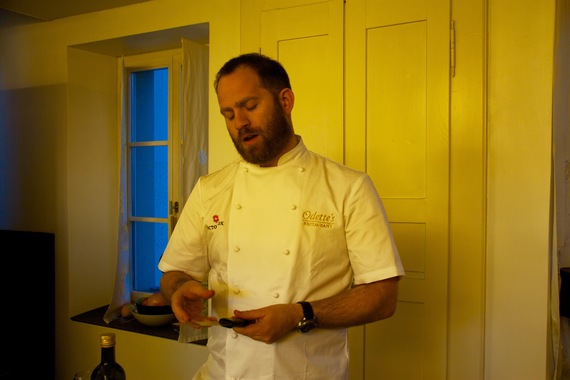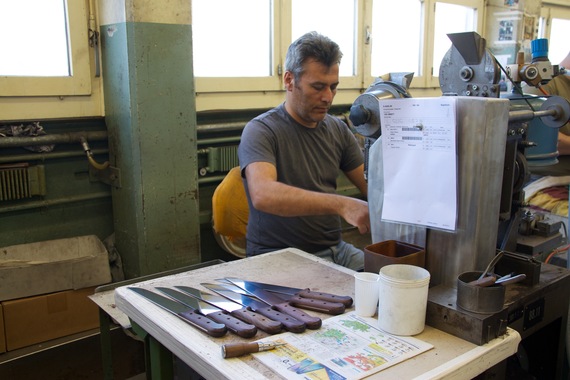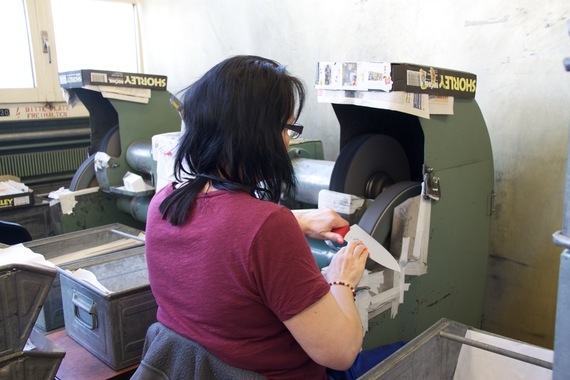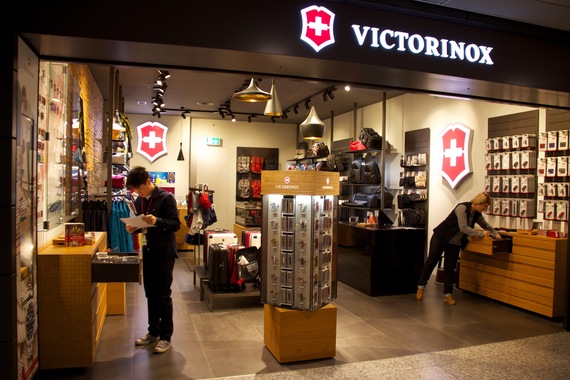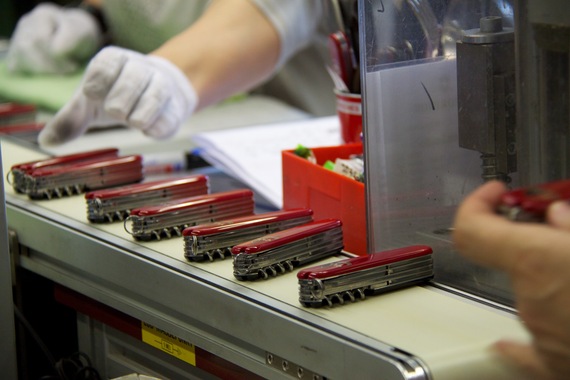For over 130 years the Swiss town of Ibach has been home to the Swiss Army Knife. It’s here that Victorinox makes the iconic red-handled knife with a thousand uses, now regarded as a piece of everyday design and engineering.
The Swiss Army Knife is made entirely by hand, along with a host of other kitchen and professional knives, smaller knives are assembled using machines.
There are a whopping 350 different models to choose from including the smaller knives complete with scissors and toothpick, to the rescue tool which enables the owner to cut through a seatbelt or breakthrough shatterproof glass, hence the name. There’s a knife with a tool for every conceivable job.
It’s fair to say that things have moved on from the first knife the cutler and entrepreneur Karl Elsener developed back in 1884 for the Swiss Army.
Today, the factory sits on the site where the first knife was forged 130 years ago and today 120,000 are produced every day.
The steel is imported from France and Germany and forged here in the factory nestled between the mountains.
First up, it’s the stamp-out machine which presses out the shape of the knives. Any waste is given back to the steel manufacturer for new steel production.
The blades are hardened in ovens heated to 1050 degrees.
Polishing and grinding ensure the knives are the correct size.
Everything is made on-site for both the knives and the army knives – the only parts that aren’t made here are the ‘O’ rings and the corkscrew, made specifically for the company in France.
Victorinox’s green credentials are admirable, they’ve managed to make sure that there is absolutely no steel waste whatsoever, even the steel and water sludge produced from the polishing and grinding is separated and pressed into cubes and returned to the steel manufacturer for recycling.
Electricity is supplied from a hydro-electric power station close by and any hot water recycled back into the factory, also managing to supply hot water to 140 homes too. The factory uses just enough heating oil to run a family home. They employ 900 people, invest heavily in a comprehensive apprenticeship scheme and the staff not only to stay for decades but convince their children it’s a great place to work too.
Chef Patron at Odette’s in London, Bryn Williams, has used Victorinox knives for as many years as he can remember. He will tell you about how his wooden-handled chef knife has moulded to the shape of his hand and how he wouldn’t be without it, or for that matter use anything else. A great ambassador for the brand.
Knives are forged for both wooden and plastic handles, some to order, and all sharpened before they leave the premises.
When I was researching the Swiss Army Knife I didn’t think about how important this iconic red multi-tooled knife meant to anyone who owned it. It would seem that everyone has a story about how it helped them in a time of need, dependent on the scale of drama it could be anything from a life-threatening situation to a broken nail.
Many lovers of the great outdoors wouldn’t leave home without out but when I met Karl Elsener the great-grandson of the man who developed the original knife back in 1884, he reminded me of a quote from Chris Hadfield’s book An Astronaut’s Guide to Life on Earth.
[youtube=https://www.youtube.com/watch?v=AAU-6ZRa2ZY&w=640&h=385]
Nevertheless, Astronaut endorsement couldn’t help the business in the wake of the terrorist attacks on 11 September 2001. With security heightened and travellers forced to undergo rigorous checks, the likes never saw before, restrictions for blades were put in place. EU regulations allow passengers to travel with bladed items no longer than 6cm, however, all US flights ban all types of blades. These bans have had a huge impact on the business, there’s no denying, but it’s been a bad thing and a good thing in equal measure. Mr Elsener tells me that almost overnight, once the banning of sharp objects came into play at Airports all around the world, sales of the knives, once a duty-free given, collapsed. “We lost over 40% of our business, and airports sent vast quantities of the knife back to us.” Surprisingly, they didn’t lose a single member of staff during this time and workers were leased to other businesses in the area. Other product areas were developed including the household kitchen knives, watches and luggage.
The corporate market is clear as we make our way through various areas of the factory. They are a popular brand for what’s called ‘gifting’ and companies can have their logo on the handle of a Swiss Army Knife or etched onto the blade. Corporate and enterprise business is a big customer base.
So what next for the brand? Keep an eye across the watch sector, they’re looking at the smartwatch market with a new timepiece being unveiled at the end of the year or early 2016 at the latest.
If you visit the region of Schwyz, be sure to pop into the Victorinox shop, they sell everything they make on-site, with some great kitchen knives at a fraction of the store price.
